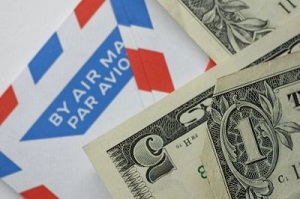What is the Meaning of Phishing?
Posted by PLB · Leave a Comment

 One of the most common tricks for stealing your information is aptly called “phishing” (pronounced just like “fishing for information”). Phishing is any attempt at tricking someone to send information that can be used to access their accounts or get them to send money.
One of the most common tricks for stealing your information is aptly called “phishing” (pronounced just like “fishing for information”). Phishing is any attempt at tricking someone to send information that can be used to access their accounts or get them to send money.
A number of students fall prey to this scam. It is, therefore, important that students are aware of this lurking danger online. The meaning of phishing can be better explained to students with an example: An email stating that you’ve won an extraordinary amount of money and all that is needed is to verify the account in which money should be deposited. Never provide any bank account numbers or passwords. Once someone has this information they can clean out the account immediately.
Another common tactic is to claim that they have a check that they cannot cash and that they will send you the money if you will cash it for them and you can keep a percentage. To show that you are legitimate, they ask you to send them a couple thousand dollars and claim that they will send you the large check and you can keep the difference. Their check ultimately bounces and you lose the original money that you send.
Never send money (this includes money orders, checks or other forms of payment) to sources you do not know.
One of the best rules to avoid online hoaxes and scams is with common sense. If it sounds too good to be true, it probably is. If someone claims you won a prize, you should never have to give them your credit card number or bank account information to verify or claim it. If someone is seeking donations for what appears to be a good cause, take the time to check them out, again with a third party, to make sure they are legitimate. Get names, phone numbers, and addresses of those you are trying to do business with. Verify the information with a third party before sending anything.
If you get a request from someone you know that seems out of the ordinary, verify they sent the request. It is possible to spoof an email address to make you believe its coming from someone other than the person who sent it. Remember businesses will not send an email asking for your password or account numbers. Don’t respond to or forward chain emails without the permission of the person to whom you want to send it.
Always proceed with caution if an offer seems too attractive. Milton Friedman, U.S. Economist, is known for his popular quote: “There is no free lunch.” Be cautious of what you do online.
Learn More… Take this course: Internet Safety: Protecting Children in an Online World
Discuss Here: How can we better explain the meaning of phishing to our students?



